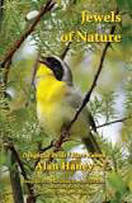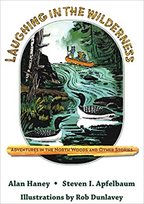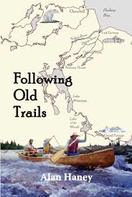view past presentations on You Tube
December 6, 2017 Robotics & Artificial Intelligence
Bilge Mutlu , UW Computer Science
Bilge Mutlu , UW Computer Science
|
|
Bilge Mutlu, Ph.D., is director of the Wisconsin Human-Computer Interaction Laboratory and an associate professor of computer science at the University of Wisconsin–Madison. A former Fulbright Scholar and the recipient of National Science Foundation’s CAREER award, his research has been covered by national and international publications including the NewScientist, MIT Technology Review, Discovery News, Science Nation, and Voice of America.
Professor Mutlu leads a research program that builds human-centered methods and principles for designing robotic and other interactive and intelligent technologies to help people work, communicate, and pursue their personal goals. The research draws on a transdisciplinary design research process that combines aspects of design as well as computational and behavioral sciences. Join us for a conversation about the future of robotics, artificial intelligence and the potential impacts on our future. |
November 1, 2017 Birds in the Northwoods: Impacts of Human Activity
Alan Haney, UWSP College of Natural Resources
Alan Haney, UWSP College of Natural Resources
|
|
Alan will explore the landscape and biodiversity of the northern Midwest in the face of climate change and other human caused disturbances. Drawing upon their forty years of field research they will discuss how relationships between nesting birds and their habitats are affected by natural and manmade disturbances.
Dr. Alan Haney, an Emeritus Professor of Forestry at the University of Wisconsin-Stevens Point, and an ecologist with over 40 years of field experience. Alan and his colleagues initiated research in the southern boreal ecosystem in 1976, focusing on how the forest communities respond to disturbances, including fire, wind and logging. This research continues and has resulted in the compilation of the largest database in existence on birds of the Great Lakes Region and habitat relationships. Alan has authored or co-authored 7 books and over 50 scientific papers. If you are interested in Alan's books Copies are available from R. Schneider, Publishers.
312 Linwood Avenue, Stevens Point, WI 54481. Shipping cost is $5 for the first book, and $1 per additional book. Made checks payable to Alan Haney. |
October 4, 2017 Sports Injuries in Youth Athletics
David Bell, UW Department of Kinesiology: Athletic Training, Orthopedics and Rehabilitation
David Bell, UW Department of Kinesiology: Athletic Training, Orthopedics and Rehabilitation
|
ACL injury prevention information
http://www.yrsa.ca/fifa-11.html https://www.youtube.com/watch?v=4HYcUd2L7FU |
Dr. David Bell, PhD, ATC, is an Assistant Professor in the Departments of Kinesiology and Orthopedics and Rehabilitation at the University of Wisconsin – Madison. David teaches in the Athletic Training Program and serves as the director of the Wisconsin Injury in Sport Laboratory. He was named the 2017 New Investigator of the Year for the National Athletic Trainers’ Association Research and Education Foundation.
Earlier this year David, and researchers from across campus, produced a groundbreaking study which examines whether or not more young people are focusing their efforts on excelling at a single sport, instead of playing a variety through the seasons. His research was awarded the 2017 STOP Sports Injuries Award for best research paper on youth sports injury prevention at the American Orthopedic Society for Sports Medicine Annual Meeting (co-author). If there is a key takeaway for young athletes and their parents, Bell says simply, “Make sure your children are getting breaks in competition.” Join us to learn more about sports injuries and how to minimize risk! |
September 6, 2017 Northwoods Agriculture: Oxymoran or the Future
Paul Mitchell, UW Madison Agricultural and Applied Economics
Paul Mitchell, UW Madison Agricultural and Applied Economics
|
|
Paul Mitchell, Ph.D, is a Professor and Extension State Specialist in the Department of Agricultural and Applied Economics at the University of Wisconsin-Madison. Paul is also Director of the Renk Agribusiness Institute and Co-Director of the Nutrient and Pest Management Program. His research program broadly focuses on the economics of crop production. Paul also maintains an active outreach program as an Extension state specialist and also teaches Farming Systems Management at the UW-Madison. Paul grew up on a farm in northeastern Iowa, graduated with a BA in History from Iowa State University, an MS in Classics from the UW-Madison after which he earned a Ph.D in Economics from Iowa State University. He has been on the faculty at the University of Wisconsin since 2004. Paul will discus major trends he sees in US and Wisconsin agriculture over the next few decades and what it likely means for the Northwoods. Can crop and livestock farming move into the Northwoods or is this just an oxymoron – a contradiction that cannot be? Even if it is technically possible, will it and should it? If agriculture is the future for the Northwoods, what might it look like? Finally, what can we do today to help make the Northwoods future we want? Join us to learn more about the agricultural potential for Wisconsin and the Northwoods!! |
June 7, 2017 Wonderful World of Wood From Africa to Wisconsin
Mike Weimann, USDA, Forest Products Lab
Mike Weimann, USDA, Forest Products Lab
|
|
Michael C. Wiemann, is a Wood Technologist and Botanist with the USDA Forest Service Forest Products Laboratory. At the turn of the 19th century, logging had proceeded across much of the eastern United States and demands for wood products were rising rapidly. In 1910, the Forest Products Laboratory (FPL) was established in Madison, Wisconsin, to find ways to conserve scarce timber resources. For almost 100 years, our mission has been to use our Nation's wood resources wisely and efficiently, while at the same time keeping our forests healthy. Our research began with preserving railroad ties, and now we are venturing into nanotechnology and finding ways that our research can contribute to mitigating the impacts of climate change.
The range of FPL wood research spans from fiber and chemical science to composites. Whether it's putting a self-adhesive, environmentally friendly stamp on an envelope or walking on a hardwood floor, FPL has in some way contributed to making those products and innovations. "Throughout history, the unique characteristics and abundance of wood have made it a natural material for homes and other structures, furniture, tools, vehicles, and decorative objects. Join us to learn more about the science of wood research and how it helped solve the Lindberg kidnapping case.! |
May 3, 2017 Gardening in Wisconsin
Jason Fischbach, UW Extension
Jason Fischbach, UW Extension
|
|
Jason Fischbach, UW-Extension Agriculture Agent, works with agricultural producers and community partners to diversify and revitalize the agricultural economy of Ashland and Bayfield County. Jason has been working with commercial and home fruit, flower, and vegetable growers since 2007.
In 2010, he helped establish the Bayfield Agricultural Enterprise Area to assist in efforts to protect orchard lands. In addition, Jason has established a series of fruit trials to help the growers diversify. He has established and is managing trials on red and white currants, sweet cherries, wine grapes, and black raspberries. In addition, he has helped the fruit growers adopt integrated pest management techniques, resulting in a 58% reduction in the toxicity of their pest management programs. Gardening in Northern Wisconsin is a rewarding, but challenging endeavor. It takes skills, tricks, and a lot of good luck to produce top quality fruits, vegetables, and flowers. Jason will discuss the top 5 skills gardeners in the north must master. What are those top 5 skills? You'll have to attend or tune in to find out. Join us to learn more about the successful gardening techniques in the Northwoods! |
April 5, 2017 Wildlife in Wisconsin
Scott Craven, UW- Madison Forest and Wildlife Ecology, Emeritus
Scott Craven, UW- Madison Forest and Wildlife Ecology, Emeritus
|
|
Scott attended the University of New Hampshire and earned a degree in zoology. Originally from New Hampshire Scott moved to Madison in 1972 to attend the UW to earn his master's degree and doctorate in wildlife ecology.
As a grad student, he worked in the Department of Forest and Wildlife Ecology and joined the department in 1979 as a faculty member. In addition to teaching and advising students, conducting research and serving as department chair, he also was a wildlife ecology specialist for the UW-Extension. Scott retired from teaching but continues to work with some specific Extension programs. When he started, the department chair was Bob McCabe, a student of Aldo Leopold's. Scott felt a lot of Leopold's influence through Bob. Aldo Leopold, the father of wildlife ecology, is why Scott decided to become a wildlife specialist. For 25 years, Scott has had a show on Wisconsin Public Radio. He first did the "Wonderful World of Nature," which ended in 1993. Now, Scott is on Larry Meiller's show the first Wednesday of each month, responding to questions and providing the public with timely information. People of all ages love wildlife and have a curiosity about different types of animals. One of the nicest aspects of my career has been to respond to their questions about what types of animals they've seen. I responded to between 1,000 to 2,000 questions per year from the public. |
March 1, 2017 Chronic Wasting Disease (CWD)
Michael Samuel, UW-Madison Forest and Wildlife Ecology, Emeritus
Michael Samuel, UW-Madison Forest and Wildlife Ecology, Emeritus
|
|
Michael Samuel Ph.D recently retired, having been Professor of Wildlife Ecology and Assistant Unit Leader, USGS BRD Wisconsin Cooperative Wildlife Research Unit.
Dr. Samuel’s research program combined a variety of laboratory analyses, epidemiology, modeling tools and field investigations, to address a broad range of applied research on the ecology of wildlife disease. Chronic Wasting Disease (CWD), a transmissible spongiform encephalopathy affecting North American deer and elk, has recently emerged as an internationally important wildlife management issue. Interest and concern over the spread of this disease and its potential impact on free-ranging cervid populations has increased with the discovery of the disease in numerous states and provinces. Current studies suggest that CWD may have long-term adverse affects to these highly visible, socially desirable, and economically valuable species. Scientific understanding of the ecology and transmission of CWD in free-ranging wildlife is very limited and this information is critical to providing knowledge for making management decisions, and helping to better understand the ecology of CWD in free-ranging populations. Join us to learn more about this important research and how the results may impact our future. |
February 1, 2017 The Secret World of Life Beneath the Winter Snows
Jonathan Pauli and Ben Zuckerberg
Jonathan Pauli and Ben Zuckerberg
|
|
Jonathan Pauli, Ph.D. and Ben Zuckerberg Ph.D are professors in the UW-Madison Department of Forest & Wildlife Ecology. They are members of a new breed of researchers called winter ecologists. The field focuses on relationships among animals, plants and their snow-covered environments. Snow covers some 40 percent of Earth's land masses year in and year out. Scientists are discovering, snow is critical to animals and plants that live in northern latitudes, as well as those in far southern latitudes, like Patagonia as it ensures their, and our, survival.
"Compared to other habitats, snow ecosystems have barely been explored," Pauli says. "That's a major oversight, considering how important snow is in the lives of so many species." Many plants and animals hunker down, relying on snow cover for safety from winter’s harsh conditions. The small area between the snowpack and the ground, called the subnivium, is a seasonal and sensitive refuge and might be the most important eoc-system that you have never heard of. Join us to learn more about this amazing research and how the results may impact our future. http://greatlakesecho.org/2017/01/03/scientists-explore-the-mysterious-inner-space-of-the-subnivium/ |
January 4, 2017 Creating Stars and Black Holes on Earth
Cary Forest, UW-Madison Physics Department
Cary Forest, UW-Madison Physics Department
|
|
Plasma Astrophysics: Creating Stars and Black Holes on Earth
Dr. Cary B. Forest, Ph.D received a Bachelor of Science degree from the University of Wisconsin in 1982 in the Applied Math, Engineering and Physics program. He received a Magnetic Fusion Energy Science Fellowship from the Department of Energy to attend graduate school at Princeton University where he received a Ph.D. in 1992 in the Astrophysical Sciences department. Dr. Forest's research Program in experimental plasma physics is on the border between nuclear fusion research and the discipline of laboratory plasma astrophysics. Astrophysics is a branch of space science that applies the laws of physics and chemistry to explain the birth, life and death of stars, planets, galaxies, nebulae and other objects in the universe. It has two sibling sciences, astronomy and cosmology, and the lines between them blur. Astrophysicists seek to understand the universe and our place in it. Join us for an interesting conversation about phenomena in our universe. |



